

“We’re all just mercenaries, really”: Inside the rarified world of professional polo
With money, national pride and broken bones at stake, there’s much more to polo than its genteel image gives away...
Words: Joseph Bullmore
Photography: Dan Medhurst
In Polo Land, it’s always sports day. Not the sports day you’re thinking of, I should say. Not the normal, suburban, egg-and-spoon type of sports day, you understand. Not the one with participation medals and teacher-parent races and Robinson’s orange squash in plastic cups. Not that at all.
No — it’s the full blown, five-day, Festival of Speed sort of sports day. Vintage Porsches with hampers on the back and second wives in the front. Gazebos down by the river. Olympic-grade starting pistols and tannoy announcements about the seafood buffet. Seb Coe presenting medals on the headmaster’s lawn and running spikes over the shoulder. Three days of preliminary heats and miniature cans of Perrier. Wimbledon over the radio and au pairs on the crash mats. That sort of sports day.
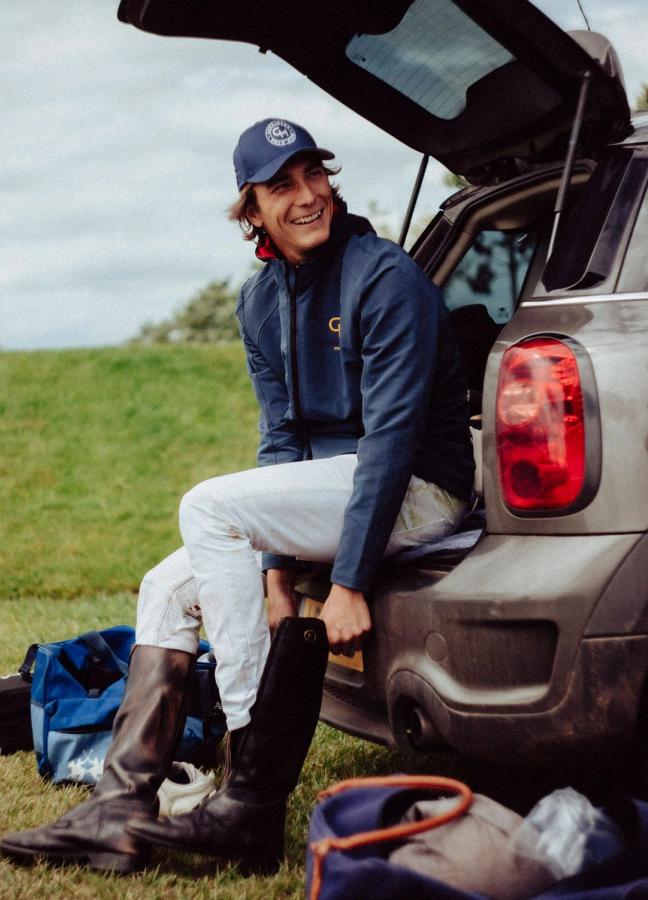
Jack Richardson
I mean this as a compliment, you understand. No-one does sporting ritual quite like the Home Counties set. And polo is the only sport I can think of that can sustain that level of pageantry from prep school to retirement. On a quiet-ish monday afternoon down at the Black Bears Polo Club, owned by the polo-obsessed Schwarzenbach clan, things have the relaxed rigour of the early heat. A few cars dotted around the edge of the vast oval field (always bigger than you remember). Four small branded marquees, one for each of the teams competing. A couple of kids on hobby horses with miniature mallets of their own. Lots and lots of ponies. But even today, with the sun blazing down on the freshly cut grass, you can sense the drama, the hot pursuit, the champagne just around the corner.
For Alec White, Charlie Hanbury, Jack Richardson and Ollie Cudmore, this is business as usual. It’s the opening round of the Warwickshire Cup, and they’ve just seen off Emlor, a handy outfit on something of a hot streak. The boys are all playing for the Lovelocks team, the side affiliated to Charlie Hanbury’s pony stud down in Argentina. They are professional athletes very much at the top of their game — Premier League-equivalent players with global renown. But they talk about the job and their talents with a very English understatement — the kind of sports day nonchalance that only men who ride very fast on big horses can really pull off.
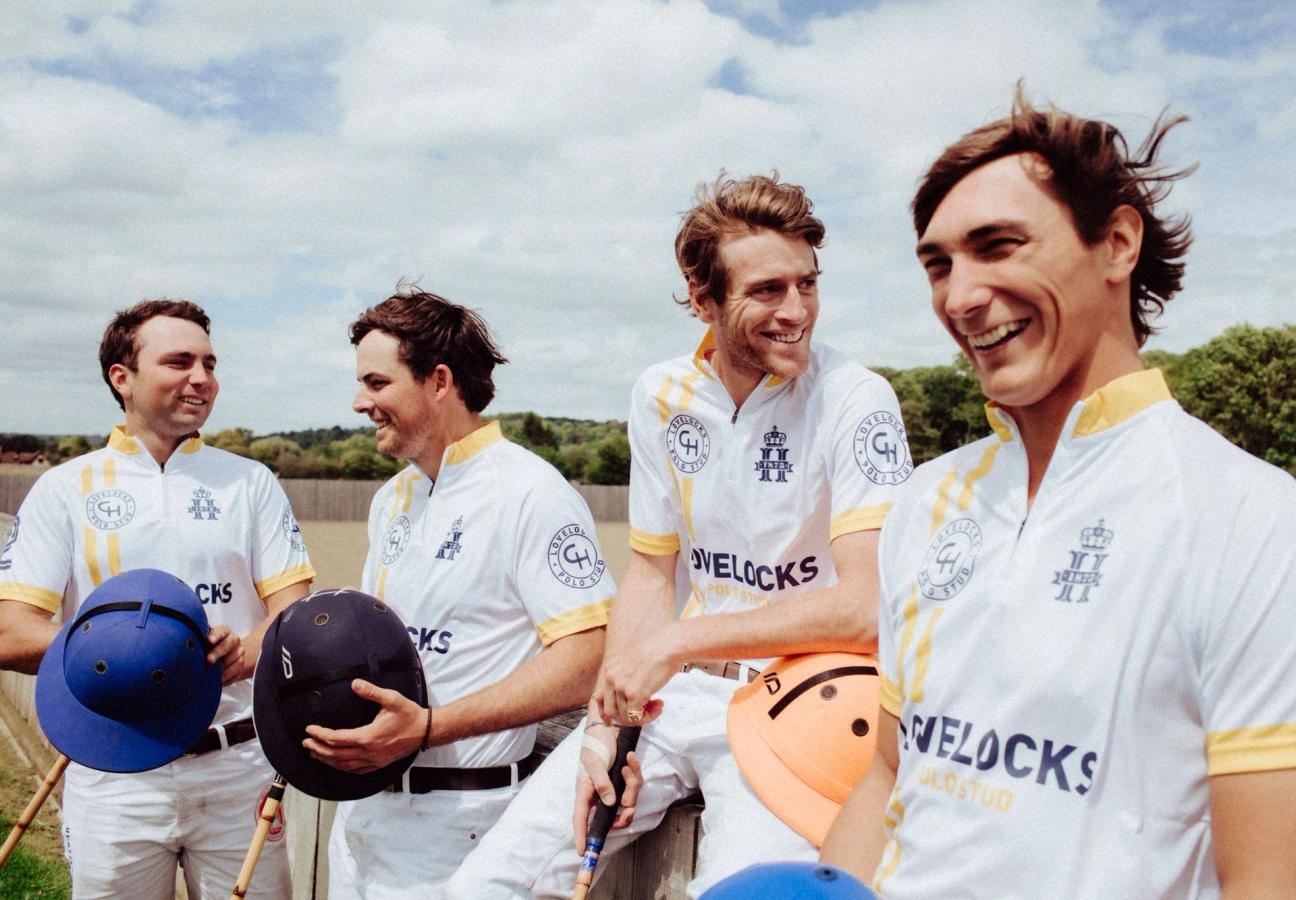
The Lovelocks polo team: Ollie Cudmore, Alec White, Charlie Hanbury, Jack Richardson
Hanbury introduces each of the boys. “Olly here is the sort of battering ram,” he begins. “Jack is the Quarterback, so it’s all a bit ‘please don’t touch me, I’ll be pretty, don’t let anyone come near me, and I’ll set up the plays.’ And Alec has to be the back door and make sure no-one gets through,” he grins. “Which means, I suppose, that I’m meant to be the goal scorer. At least, that’s the idea, anyway.”
“But we just get together as four mates to play as a laugh,” he says. “And we try to have fun, whether we’re winning or not.”
“We’re all just mercenaries, really,” says Richardson, pulling on a pair of brown leather boots over his white jodhpur-jeans. “Though a lot of these guys at the tournament today will be signed up for a season — they’ll be contracted for six months with a certain team. Most players operate on a freelance basis, and act as their own agents.”
Ollie Cudmore
The polo world is as tight knit as pique cotton. The chaps reckon there’s around 1,000 professionals on the circuit, and as we sit down on a set of folding chairs to do the interview, they nod and wave to the succession of players warming up on the pitch next to us.
“It’s a pretty close community” says Cudmore. “We know almost everyone at this sort of level. Sometimes you’re playing with them, and then sometimes you’re playing against them. So when you fall out with someone you then have to see them afterwards…”
“You’ve got to be careful who you fall out with” explains White, the Australian in the group. “But everyone just understands it’s the heat of the battle.” Still, things can get political. “The England-Argentine rivalry is always rumbling on, especially at the moment,” explains Hanbury. “It’s something to do with the visas. Though originally it was the Falklands…”
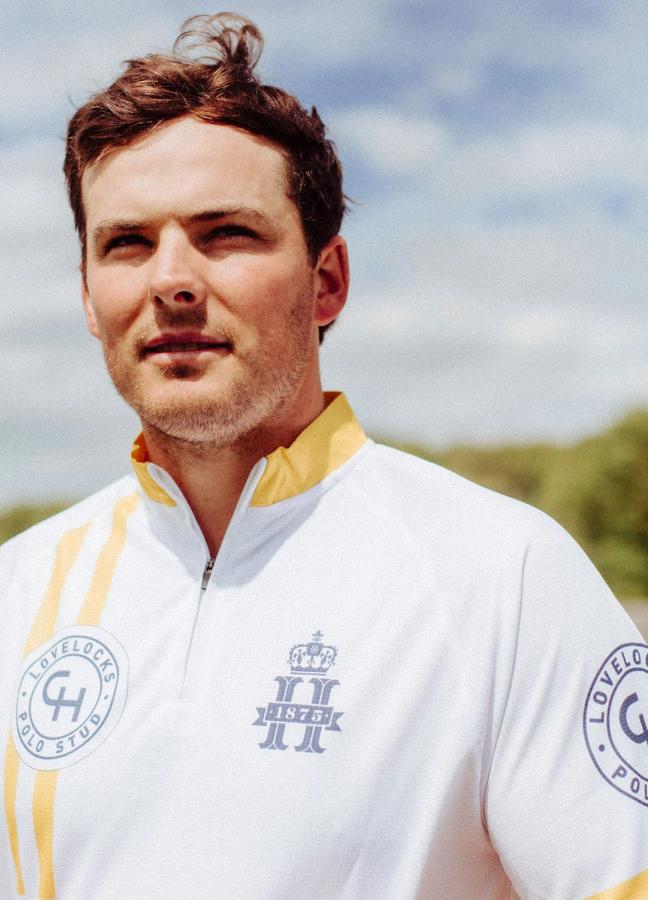
Alec White
“All the Argentinians went and got European passports so they could play here,” Richardson tells me. “But now rules might be changing so they can’t do that. It’s a bit tense, all this Brexit stuff.”
This is another symptom of the growing professionalism of the sport. When the boys’ fathers were playing the game (this is a genetic affliction, after all), things were slightly more loose and rag tag. “A lot more people now have trainers and go to the gym,” says Hanbury. “Back in the day you used to just rock up in your car and jump on a horse. Now we all train a bit. Try to stay fit.”
“The horses have got a lot better, too,” says Richardson. “Each player will have a lot more horses, and they’re more selective about what they ride.”
“It’s all because there’s a lot more money and bigger sponsors,” agrees Hanbury. “So it’s a lot more serious.”
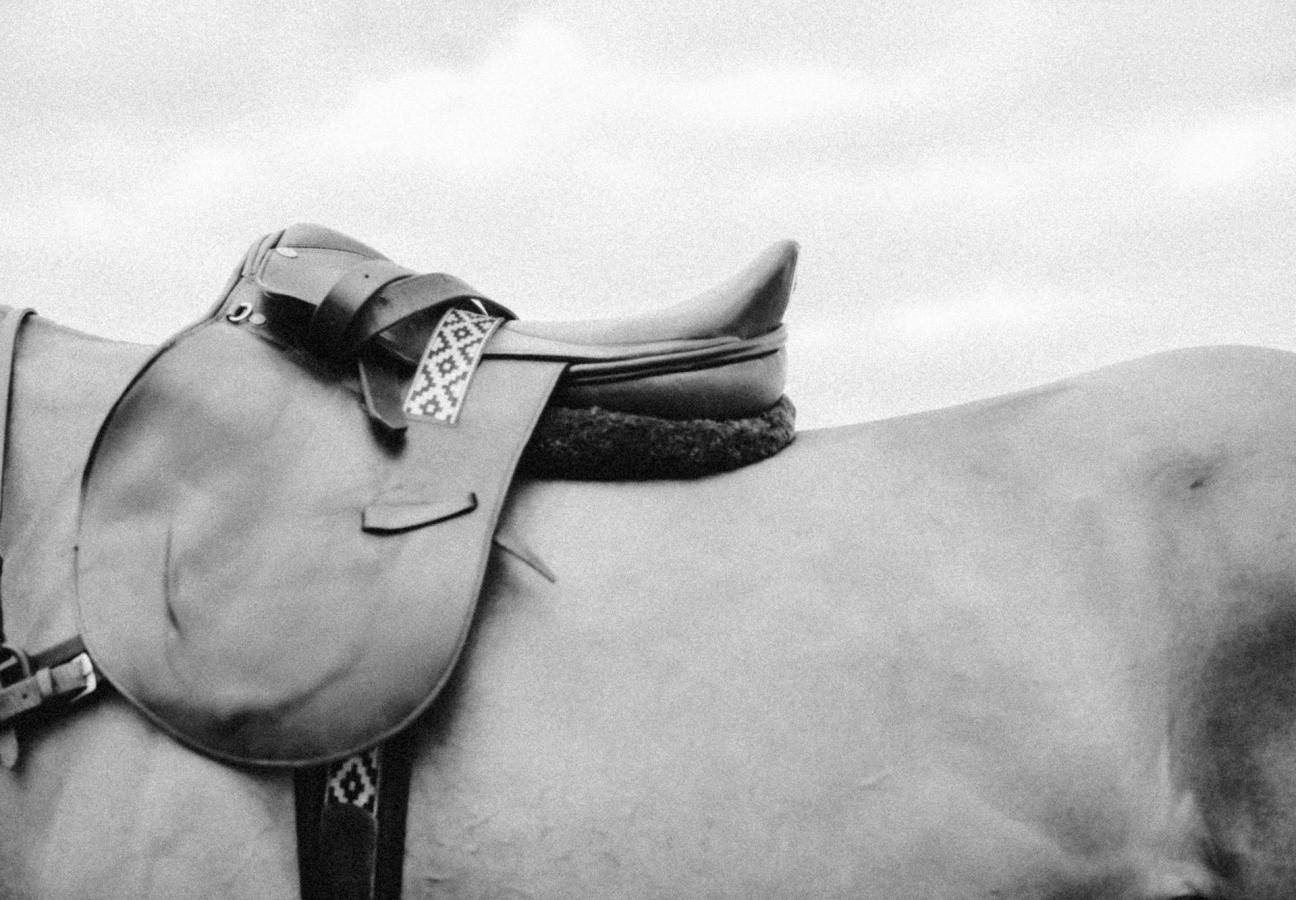
The entourage down at Black Bears is impressive. At this level, each player gets through four or five horses per game, and each horse comes with a groom. For a full team, playing a match at full tilt, there could be as many as 25 horses in action, and a support staff of more than 30. This travelling carnival doesn’t come cheap — and the stakes for each tournament are raised accordingly. Perhaps it’s not surprising that things can sometimes get a little tribal.
“I think there used to be more of a spirit of everyone meeting up after the game,” says Richardson. “Now it’s all very clique-y. You miss all the teams intermixing a bit. I think maybe it’s less social than it once was, in some ways.”
Still, polo is a moveable feast. And the game off the pitch can get just as spicy as the horseback action. “There’s a good social scene,” says Hanbury, citing the Sotogrande in Spain as the pinnacle of the season in this regard. “But you’d have to ask the younger guys about all that. I’ve been there and done that!”
“There are polo girls who follow the scene around, for sure,” laughs Jack. “But you’re asking the wrong guys,” he says, counting through his teammates: “Engaged, engaged, married!” There’s certainly something beguiling about the more violent nature of the sport. On a quieter day like today you can feel in your chest the thunder of the hooves, like syncopated war drums, and the whip-like thwack of the mallet. This is a contact sport, after all, and there is a boisterous danger in the air as the ponies collide and buck.
Jack Richardson had been de-horsed twice in the match that morning. “That’s not unusual,” says Cudmore. “I’ve broken my ankle pretty badly. I just fell off and landed on it awkwardly.”
“I got a ball to the face, thirty stitches around my eye,” says Hanbury. “Then two weeks later, one of these guys hit me in the face again — gave me another seven stitches on the other side. He was my team mate as well!”
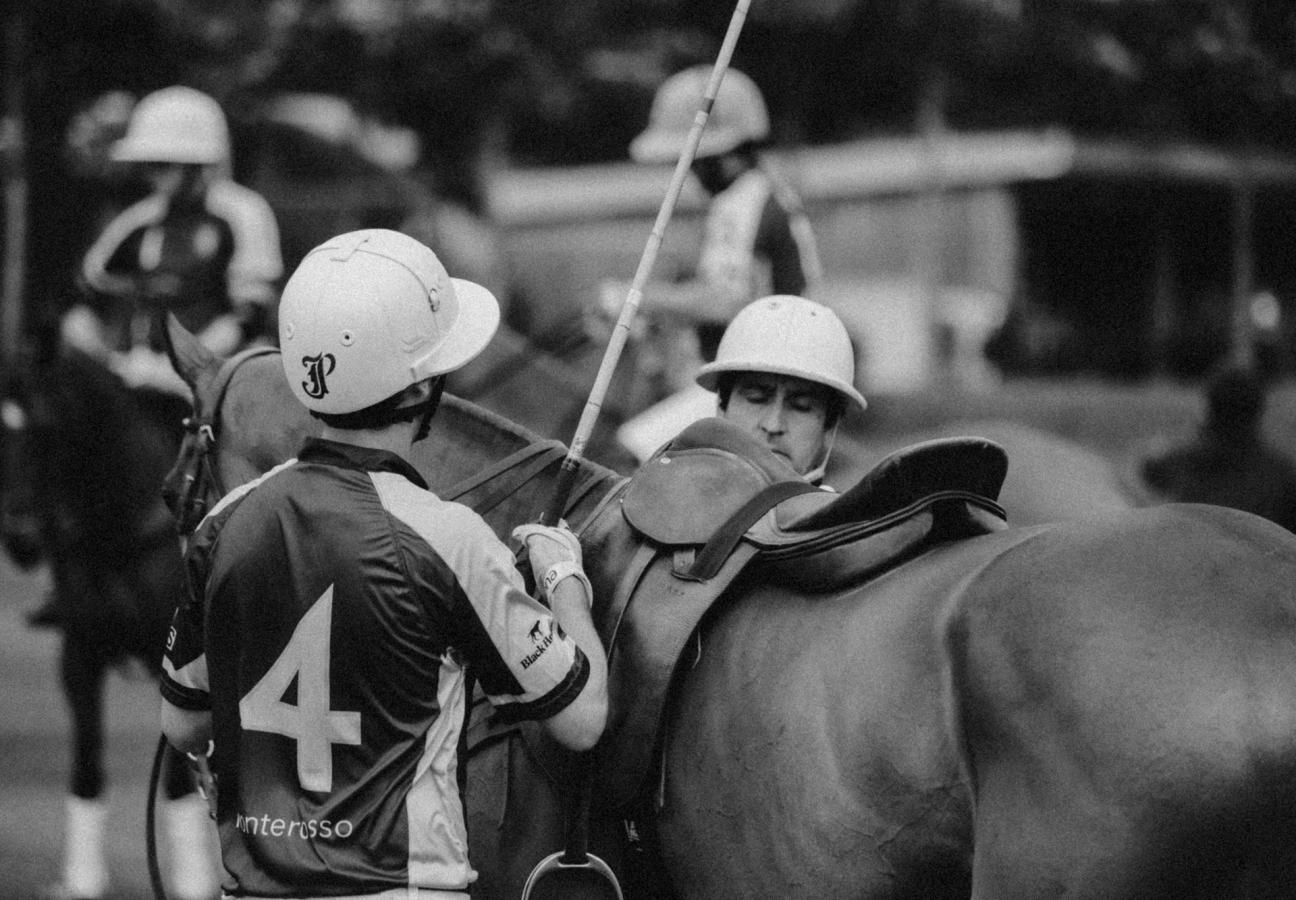
“I’ve had four stitches in my eye here from a mallet.” Jack Richardson adds. “And that was with glasses on! You can’t wear a face guard like on a cricket helmet because it’s too dangerous — a stick could get caught in it. So you wear glasses instead to protect your eyes. You can replace everything else — you can’t replace your eyes.”
“The biggest risk is flying mallets and flying balls,” Cudmore explains. “We all wear glasses now, but a few guys in the past have lost eyes due to a ball hitting them in the face.” With that in mind, I wonder whether the boys would ever want their own children to play the sport.
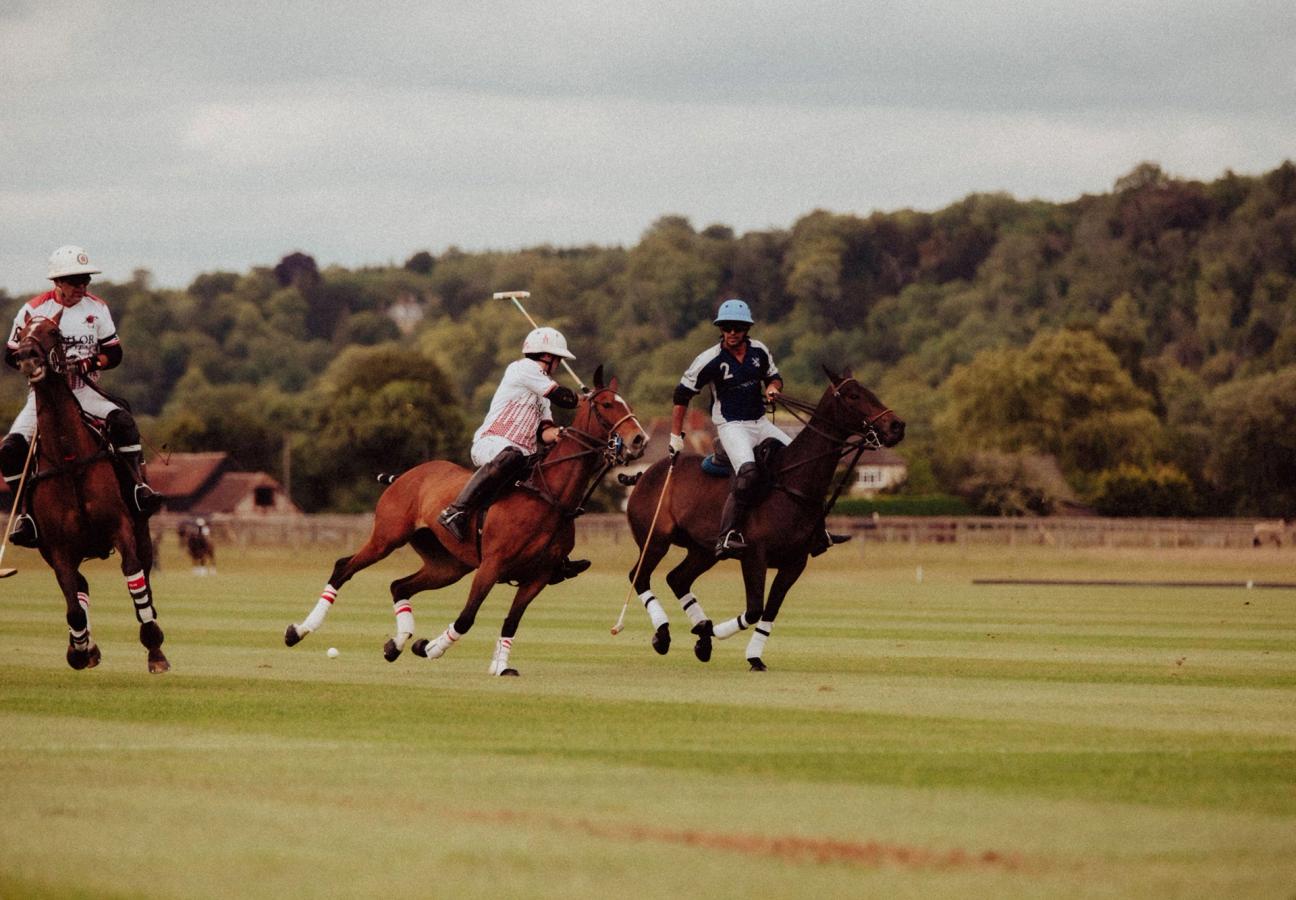
“I don’t mind if my kids do it or not,” says Richardson. “No pressure. But they have to decide: “Do you want to go to a nice school or play polo!” Because you can’t afford to do both! Horses aren’t cheap. Anything to do with horses — hunting, showjumping — it all costs a lot”
“The main expense is general upkeep and maintenance,” Hanbury says. “And you can wrap them in cotton wool but they’ll still run into a fence post. And vets are very expensive…”
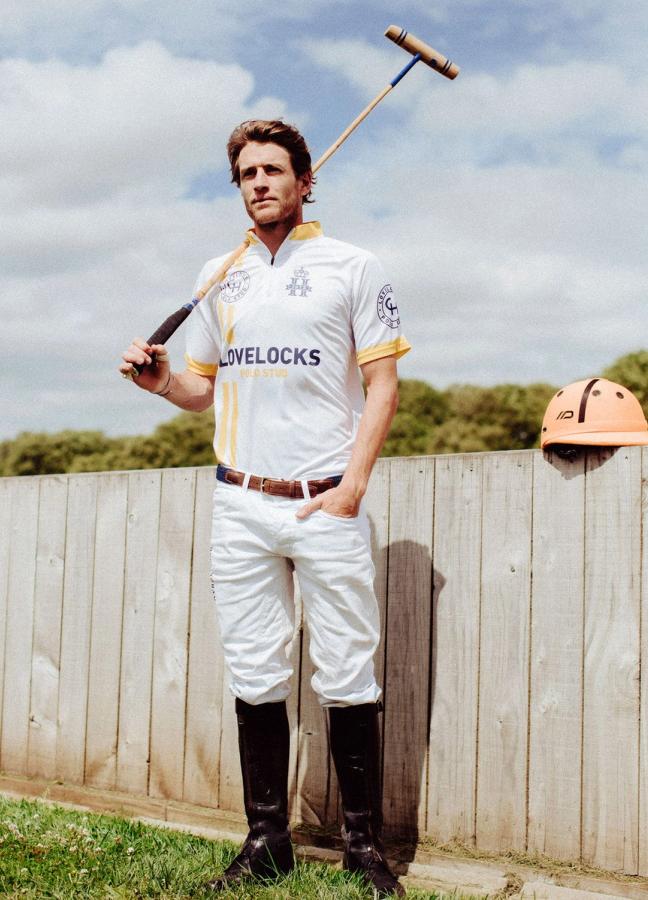
Charlie Hanbury
“The transport is very expensive, too,” Richardson adds. “A lot of the ponies here will have been literally flown in from Argentina. I re-train a lot of thoroughbreds from all over the world — some of the horses we played on today were from Australia.”
“But, really, it would be great if my children played,” says Hanbury finally “We all got into it through our fathers. You grow up around horses. And then you start riding. And you fall in love with it,” he says. “And let’s face it, whizzing around and hitting a ball, sometimes in front of a crowd of maybe 10,000 people — it’s not a bad way to spend your days.”
Shooting more your thing? Set your sights on Holland & Holland’s shooting ground…


